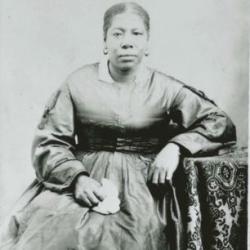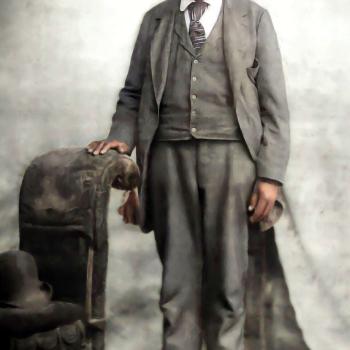I have come to call not the righteous, but sinners!
—Jesus
An old proverb says: If you want to know what a person is like, look at his/her friends.

Time and again Jesus was caught hanging with the wrong kinds of people.
After calling a tax collector to be one of his followers, that tax collector, Matthew, invited a bunch of his tax collector buddies to dinner to meet Jesus. Tax collectors were among the most despised people in all of Israel. They worked for the occupying country, Rome, collecting taxes for Rome from their fellow Jews. They were so hated that they weren’t allowed into Jewish worship. Whenever you said “tax collector,” you added in “sinners.” These men were the furthest from God’s grace that you could get.
And yet, Jesus, a religious leader, is not only hanging with these guys, he’s eating with them, meaning he accepted these men as his friends.
When the religious elite criticized Jesus for dirtying himself by affiliating with tax collectors, Jesus defended his ministry by turning grace upside down: Those who are well have no need of a physician, but those who are sick; I have come to call not the righteous but sinners.
In other words, Jesus comes only for sinners. Non-sinners need not apply.
Jesus heard the same criticism in Luke 15, with the religious leaders condemning him for eating with sinners. To defend himself he told three stories about how God chases down the wrong kinds of people to shower them with grace.
When Jesus was born, the angels announced the news to shepherds—the outcasts of the day. Men who had a reputation for lying. In fact, shepherds were never allowed to testify in court because they couldn’t be trusted. And yet, these are the people to whom the angels entrusted the message of the birth of the King!
The legalization of Gay marriage has raised some interesting challenges for those Christians who believe that homosexuality is a sin.
That story raised and continues to raise big questions: Is it discrimination for the baker to refuse to bake a cake for a couple whose relationship he finds sinful? Or, is the baker’s freedom of religion in jeopardy if he is forced to serve someone whose life-style he finds against God’s created order?
Mississippi passed a “religious liberty” law protecting a person who refuses to serve someone with whose lifestyle he/she disagrees.
I’d like to suggest that for Christians, the deeper question has to do with the Gospel itself: Who are the objects of God’s favor? Who does Jesus serve? What is the message of grace?
As Christians try to make their way through the seismic changes taking place in culture, our best position is to follow Jesus. Jesus doesn’t take us away from “sinners,” he hangs out with them. He came to serve them. His grace is tailor-made for them. They are the objects of God’s affection.
Or, to say it another way, Christians stand on the same ground as the rest of humanity: we stand as sinners in need of God’s grace. As those who have experienced God’s grace, we are called to serve others the way Jesus served the “sinners” in his day. Which is to say, we are called to stop seeing “sinners” and to see the people Jesus loves.
As Martin Luther puts it: Beware of aspiring to such purity that you will not wish to be looked upon as a sinner, or to be one. For Christ dwells only in sinners.
Shouldn’t followers of Jesus be known by the company he keeps?















